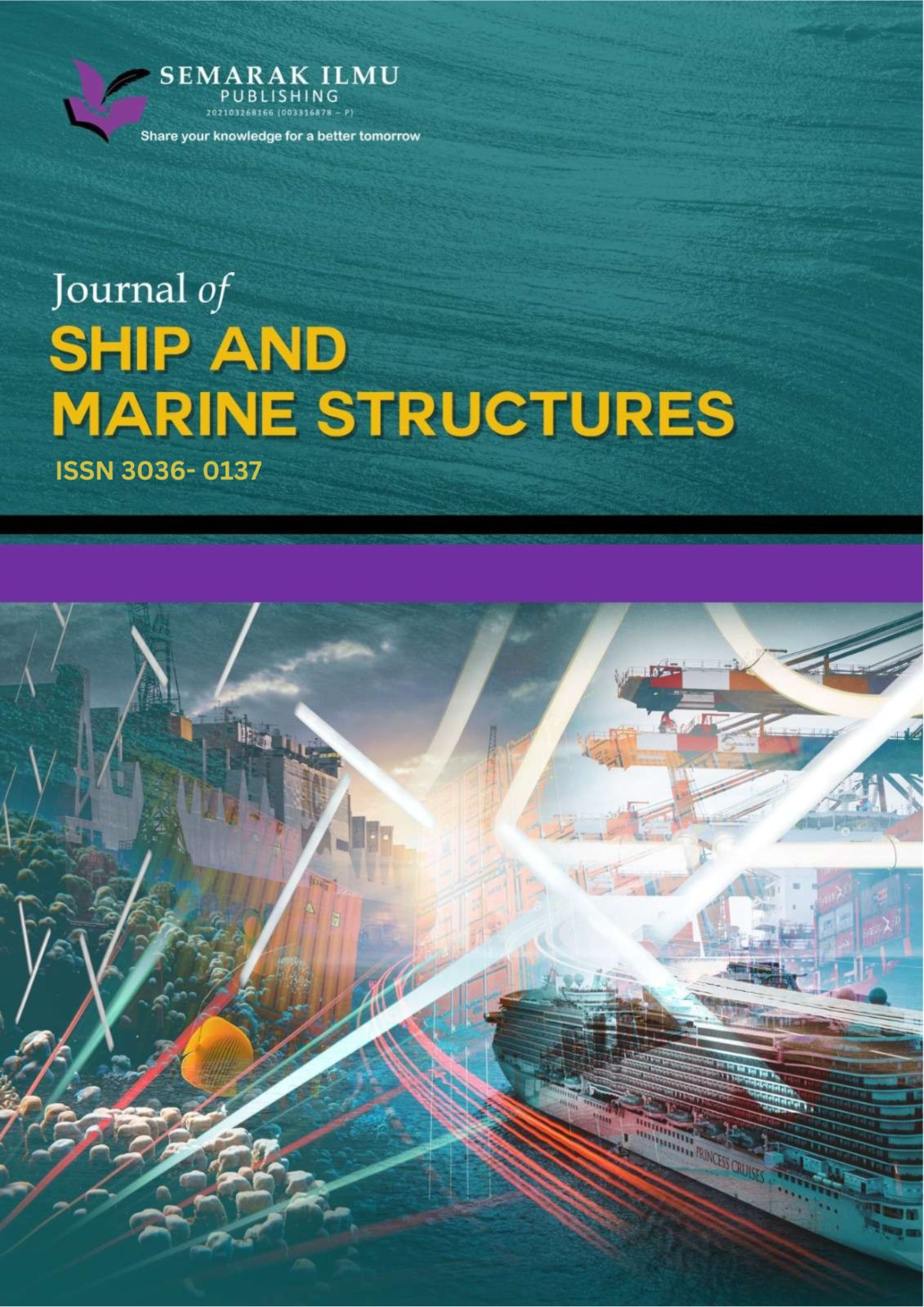
Privacy Statement
The names and email addresses entered in this journal site will be used exclusively for the stated purposes of this journal and will not be made available for any other purpose or to any other party.
The names and email addresses entered in this journal site will be used exclusively for the stated purposes of this journal and will not be made available for any other purpose or to any other party.







Journal of Ship and Marine Structures (JSMS) is licensed under a Creative Commons Attribution-NonCommercial 4.0 International License.
Journal of Ship and Marine Structures (JSMS) is an international, double-blind refereed, gold open-access academic journal with the aim to foster academic research by publishing original articles in all areas of ship and marine structures. The journal encourages researchers, engineer, students, entrepreneurs and practitioners to share their latest findings, ideas and experiences related to ship and marine structure issues. The journal accepts original research report, letters, review article, and report of case studies in the following two sections: Ship Encourages the submission of highly technical papers that delve into diverse aspects of the field of the naval architecture. The topics encompass applied research in hydrodynamics, propulsion systems, manoeuvring, seakeeping, floating motions, ship production, practical design and operation, intact/damage stability, hull form optimization, marine engineering, autonomous/controlled vessels and navigation, and other related fields. The journal fosters insightful discussions and analysis to advance the field of naval architecture, promoting the development of innovative and efficient ship designs. Additionally, it explores the utilization of machine learning and data-driven models for predicting ship resistance, turning, and motion responses. Marine Structures Offers comprehensive coverage of various subjects within the field of the marine structures. It explores ship and offshore structures, subsea technology, pipelines and risers, cables and mooring, marine and ocean renewable energy, and aquaculture technology. Additionally, it encompasses topics such as conversion and decommissioning, fluid-structure interaction, structural analysis design and testing, offshore mechanics, floating production systems, offshore safety and reliability, offshore wind energy, and offshore material performance and applications..
Malaysia, Indonesia, United Kingdom, China